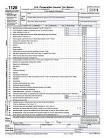ChangingStory1.14-Mis-formed

I score no better when completing surveys. Many forget to include a ‘none of the above’ choice, and most seem to insist upon an answer, however irrelevant my forced response might be.
Multiple choice tests suffer a similar fate at my hand. Even when I find a number two pencil, the finished product features so many erasures and cross-outs no two people could ever similarly interpret the results.Forms transport me to places their designers never intended. They might believe that their form encourages the desired function when, for some—me apparently included—it induces exactly what they wouldn’t want it to produce.
None of this matters too much to me, even though I’m confident that my identity in big data-land ranges from blank to my street address, and only sometimes includes my actual name, however someone might have interpreted my illegible handwriting or my impressionistic three-fingered typing technique. My data probably more closely resembles a smear than a point.
So what’s my point? I speak of presumption. We might live not in the Information Age, but the Presumption Period, an awkward time before we fully recognize that the world we’re creating isn’t quite what we believe it to be. Important decisions seem increasingly based upon data, often BIG data, gathered via perfectly round forms, surveys, and multiple choice instruments, filled out by square pegs like me, resulting in decisions made trivial by presumption.
The Muse fills out most of the forms I’m called upon to complete. I sometimes return from some adventure like visiting a dentist or insurance agency with head hanging and feet shuffling, and she’ll understand why I chose not to stay for the exam. “They had forms,” I’ll report before slinking off into the corner I imagine protects me from mis-formation. She will nod knowingly before sighing rather longingly.
I believe we are most likely creating a misinformation base to rival any imagination’s. What we firmly believe we know as a result, probably ain’t so. How could we possibly know otherwise? The machine seems designed by people who’ve never personally experienced mis-formation, and promoted by similar types. Nobody questions what’s blindingly obvious to themselves and others just like them.
I suspect that most of us mis-formed folks hesitate to reveal our little unspeakable. The Muse might empathize, but even she deep-down believes I might one day recover from my form aphasia. I’ve stopped holding my breath. When the hardware store clerk asks if I’m a rewards card member, I just say no because I know the cost of membership entails completing a form. I decline the opportunity to ‘take’ another online survey, no matter how much I’d like the requestor to understand my perspective, because I’m pretty certain that their survey will be unable to absorb what I intend, and I will feel humiliated by the end. When the telephone survey calls, I lie, figuring if they really want to know what I think, they’d engage me less systematically.
I have only small advice for those building BIG data collections. Think smaller. Your forms presume much and condition the responses into boxes way too small to contain the meaning you intend them to hold. They try to tidily represent a rather messy experience, and nobody need feign surprise when tidy, rather Mis-formed conclusions result.
©2015 by David A. Schmaltz - all rights reserved


